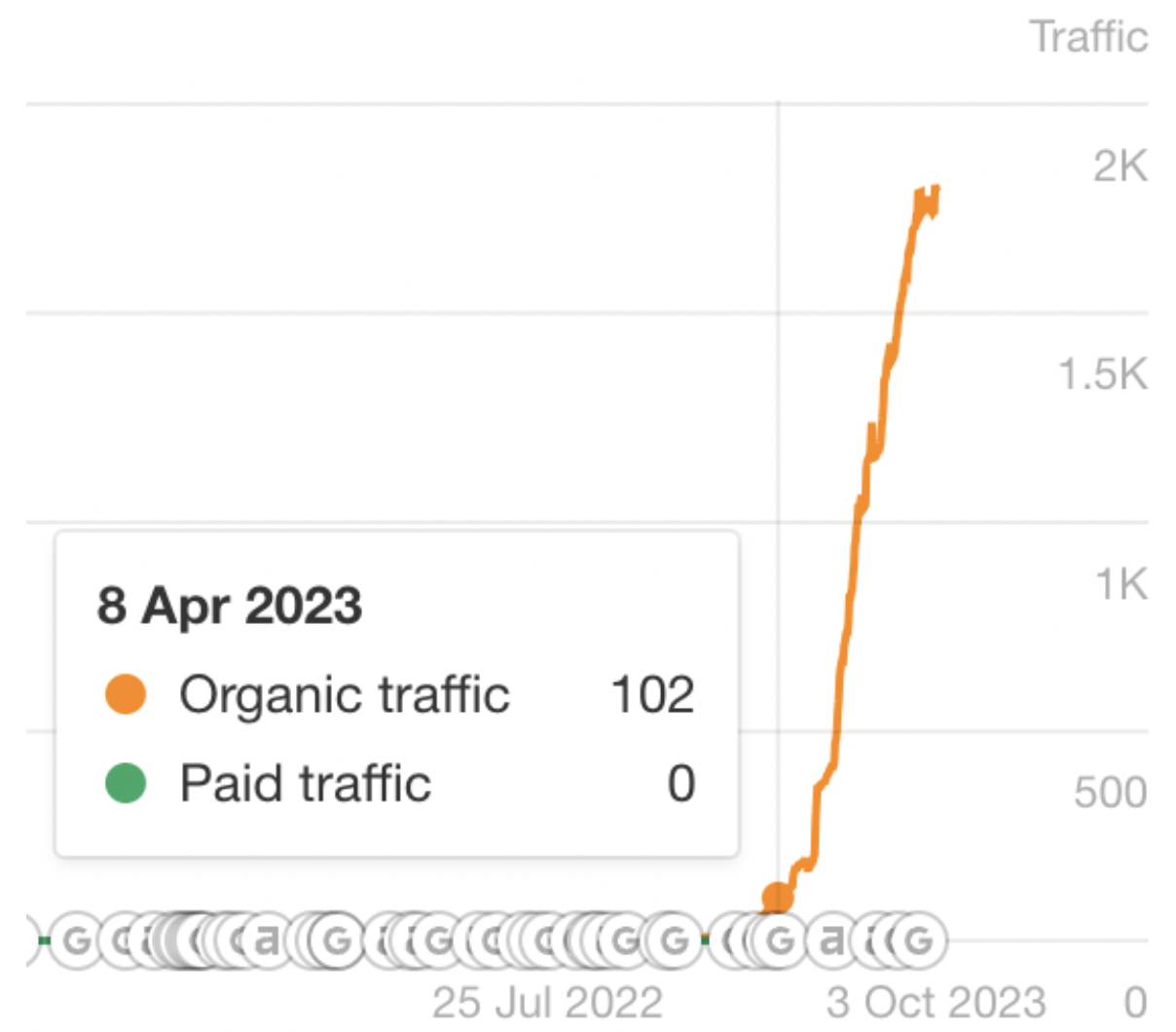Increasing Traffic 1800% in 6 Months for The Remote Traveller
In 2020, we acquired the domain TheRemoteTraveller.com with a mission to blend our passions for remote work and travel. Instead of merely sharing aspirational travel content, we aimed to provide practical insights on earning a living as a digital nomad. Using SquareSpace, we quickly set up the website and began publishing content sporadically. Initially, with no link-building budget and minimal investment, our expectations were modest.
Initial Analysis & Challenges
Starting with a new domain presents significant challenges. Google’s E-A-T (Expertise, Authoritativeness, and Trustworthiness) framework heavily influences search rankings, and newer websites need time to build credibility and authority. Our initial goal was to help Google understand the purpose of The Remote Traveller and establish our site as a trusted source in the travel space.
Content Strategy & SEO
1. Conducting Keyword Research
We began by conducting thorough keyword research using tools like Ahrefs, SurferSEO, SEMRush, and Google Keyword Planner. Our focus was on finding keywords with a balance of high search volume, low to moderate difficulty, and strong relevance to our site’s goals. Understanding search intent was crucial—whether users were in the discovery phase or ready to make a purchase helped us prioritize keywords that would drive valuable traffic.
Living in Lebanon at the time, we identified an opportunity to cover the region’s travel topics, which had lower keyword difficulties compared to saturated destinations like Italy or Greece. This strategic focus helped us quickly gain traction.
2. Creating a Content Calendar
Once we had our initial batch of keywords, we created a detailed content calendar. Our calendar included:
Core keyword
Headline
Content brief link
Final draft link
Author
Uploader
Software used
Results/rankings
Rationale for each article
This structured approach ensured we stayed organized and consistent, which is essential for building momentum and maintaining quality.
3. Developing Content Briefs and Structure
Content briefs are essential for guiding writers and ensuring SEO best practices. Our briefs included:
H1 headline
Introduction with engaging stats or quotes
H2 subheaders
Calls to action (CTAs)
Conclusion
FAQs or additional value elements
This structure helped writers focus on content execution without worrying about layout and hierarchy, improving efficiency and consistency.
4. Writing and Optimizing Content
Initially, we wrote all the content manually. As AI tools like ChatGPT and Jasper became more mainstream, we adopted a hybrid approach, using AI for efficiency while maintaining a human touch for quality and authenticity. AI helped with listicles and non-YMYL content, while human writers handled more nuanced topics. We used Clearscope for keyword optimization, ensuring our articles met SEO standards and provided valuable information to readers.
5. Publishing and On-Page SEO
Uploading and publishing content involves more than hitting the publish button. We focused on:
Crafting compelling meta-tags
Internal linking for better site navigation
Incorporating high-quality visuals
Creating interactive elements like polls and quizzes
These steps improved user experience and search engine visibility. We used Canva, Shutterstock, and MidJourney for original visuals, enhancing engagement and comprehension.
Results
1. Increased Traffic
In just six months, we grew The Remote Traveller’s organic traffic from 100 to 1800 visitors per month. This 1800% increase demonstrated the effectiveness of our SEO and content strategy.
2. Organic Backlinks
For The Remote Traveller, our content efforts led to more than 230 organic backlinks, increasing the website’s domain authority.
Conclusion
Our strategic approach to content creation and SEO for The Remote Traveller delivered remarkable results, significantly increasing traffic and organic backlinks for The Remote Traveller. By leveraging thorough keyword research, structured content planning, and a mix of human and AI-driven writing, we achieved sustainable growth and engagement.



